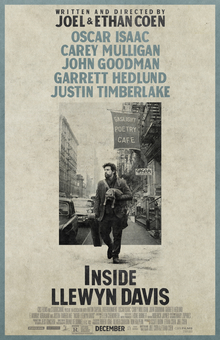 |
| Carey Mulligan and Bradley Cooper in Maestro |
Cast: Bradley Cooper, Carey Mulligan, Matt Bomer, Gideon Glick, Maya Hawke, Sarah Silverman, Vincenzo Amato, Michael Urie, Greg Hildreth, Brian Klugman, Nick Blaemire, Mallory Portnoy, Yasen Peyakov, Zachary Booth, Miriam Shor, Alexa Swinton. Screenplay: Bradley Cooper, Josh Singer. Cinematography: Matthew Libatique. Production design: Kevin Thompson. Film editing: Michelle Tesoro. Music: Leonard Bernstein.
The Aussies call it "tall poppy syndrome." It's that tendency to try to undermine or underestimate the achievement of anyone who excels. And I think we saw it directed at Bradley Cooper when the first big wave of negative publicity came out from a critic from the Hollywood Reporter who saw the trailer for Maestro and called the prosthetic nose Cooper wore to play Leonard Bernstein "ethnic cosplay." The word "Jewface," analogous to blackface and "yellowface," labels for white performers pretending to be Black or Asian, was tossed about, as if Cooper were somehow guilty of antisemitism, or even depriving a Jewish actor of the role. Defenders came to the fray, including Bernstein's family, who indicated their approval of Cooper's choice, and others who pointed out that Cooper wasn't playing a negative stereotype, or even a character like Shylock or Fagin, but an authentic musical genius. But the damage was done, and the controversy continues to be a kind of scrim through which we watch and assess the film. I think much of it stems from the fact that Cooper is one of the most exceptional talents of our time, recognized for excellence as an actor, director, and screenwriter -- a tall poppy indeed. He has a total of nine Academy Award nominations in all three of those fields plus producing -- for Todd Phillips's Joker (2019) and Guillermo del Toro's Nightmare Alley (2022). He won a BAFTA for the music of A Star Is Born (2018), for which he wrote and sang several songs, and for which he also won two Grammys. He was nominated for a Tony in 2015 for his performance on Broadway in The Elephant Man. (One of the critics of the prosthetic nose observed that he wore no disfiguring makeup for the role of John Merrick, suggesting that if he's that good an actor, he should have played the role of Bernstein without the help of makeup.) All of this is preface to saying that Maestro is an exceptional film that only adds luster to an already distinguished career. It has been labeled a biopic, which is inadequate. Biographical films are usually distanced from their subjects, dramatizations of events in a career. Maestro is more intimate than that, a portrait of a man and a marriage. Cooper goes beyond mimicry of Bernstein in a serious effort to suggest the social and sexual and artistic tensions seething within the man. If I have to voice a criticism it's that he doesn't quite bring it off -- it's a little too much for any actor or screenwriter to achieve. But Cooper shows us the depths even if he doesn't plumb them. He wisely lets us have our own thoughts about something even Bernstein probably couldn't define about his sexuality: whether he was gay or bisexual, or whether that question is stupid and irrelevant. Carey Mulligan's performance as his wife, Felicia, brittle and burning, is a perfect match for Cooper's. If they don't have the chemistry that Cooper had with Jennifer Lawrence in Silver Linings Playbook (2012) or Lady Gaga in A Star Is Born, that's partly the point: The marriage of Lenny and Felicia was one of unresolved tension. Hence the epigraph for the film: "A work of art does not answer questions, if provokes them; and its essential meaning is in the tension between the contradictory answers." I have the feeling that Maestro will be remembered and studied for years to come.



.jpg)